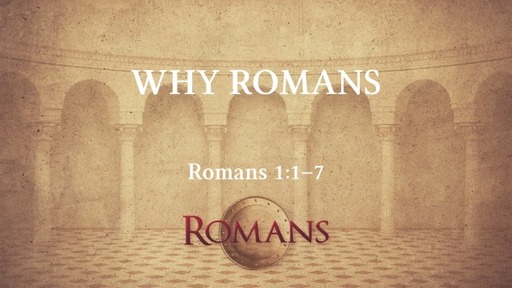Why Romans

Introduction
The year is A.D. 57, and the apostle Paul is nearing the end of his third missionary journey. He spends three months in Corinth where he writes the letter to the church in Rome. He has established churches in Asia Minor, Galatia, and Macedonia that are thriving and reaching others. But the church in Rome he did not plant, and has never visited. He has wanted to visit the church in Rome on numerous occasions, but has never gone there. Upon leaving Corinth, he plans to return to Jerusalem to deliver a financial gift from the churches in Macedonia to the struggling and persecuted believers in Jerusalem. He gives evidence at the end of his letter to the Roman church that perilous times may lie ahead for him, but he reassures the believers in Rome that he still intends to visit them. In fact, he tells them that he wants them to aid him as he takes the gospel to Spain. The letter he writes to the believers in Rome is his longest, his most systematic, and contains the longest introduction of himself found in any of his letters.
Paul’s purpose in writing is to introduce himself to the church at Rome and to lay a foundation for a partnership with them to spread the gospel to the far reaches of the known world—Spain and beyond. After his trip to Jerusalem, he plans to visit them and spend time in ministry with them in Rome before leaving for Spain. This letter, which they will have had time to read and digest before his arrival, will be a theological education for them. If the church is going to partner with him in spreading the gospel to Spain, they must know the heart of the gospel and the heart of the apostle to the Gentiles. The first seventeen verses of Romans 1 is our introduction to both.
Paul Called By God
Three things characterized Paul
Paul is identified by commitment to his calling, commitment to people, and commitment to the gospel.